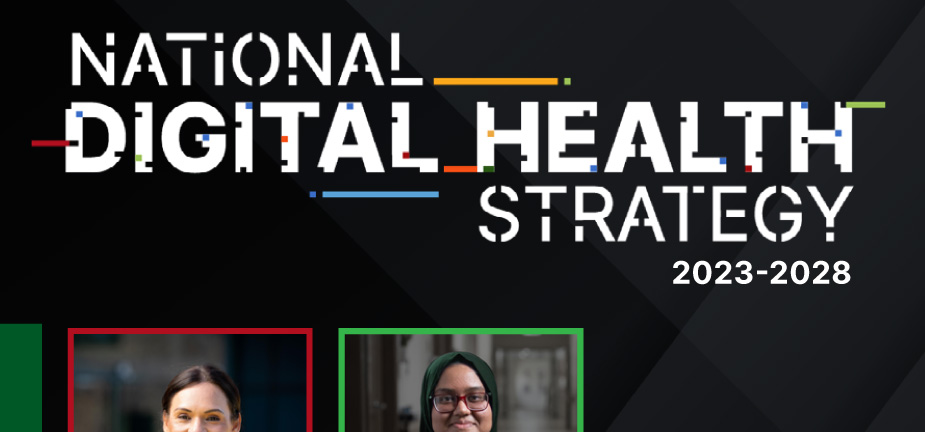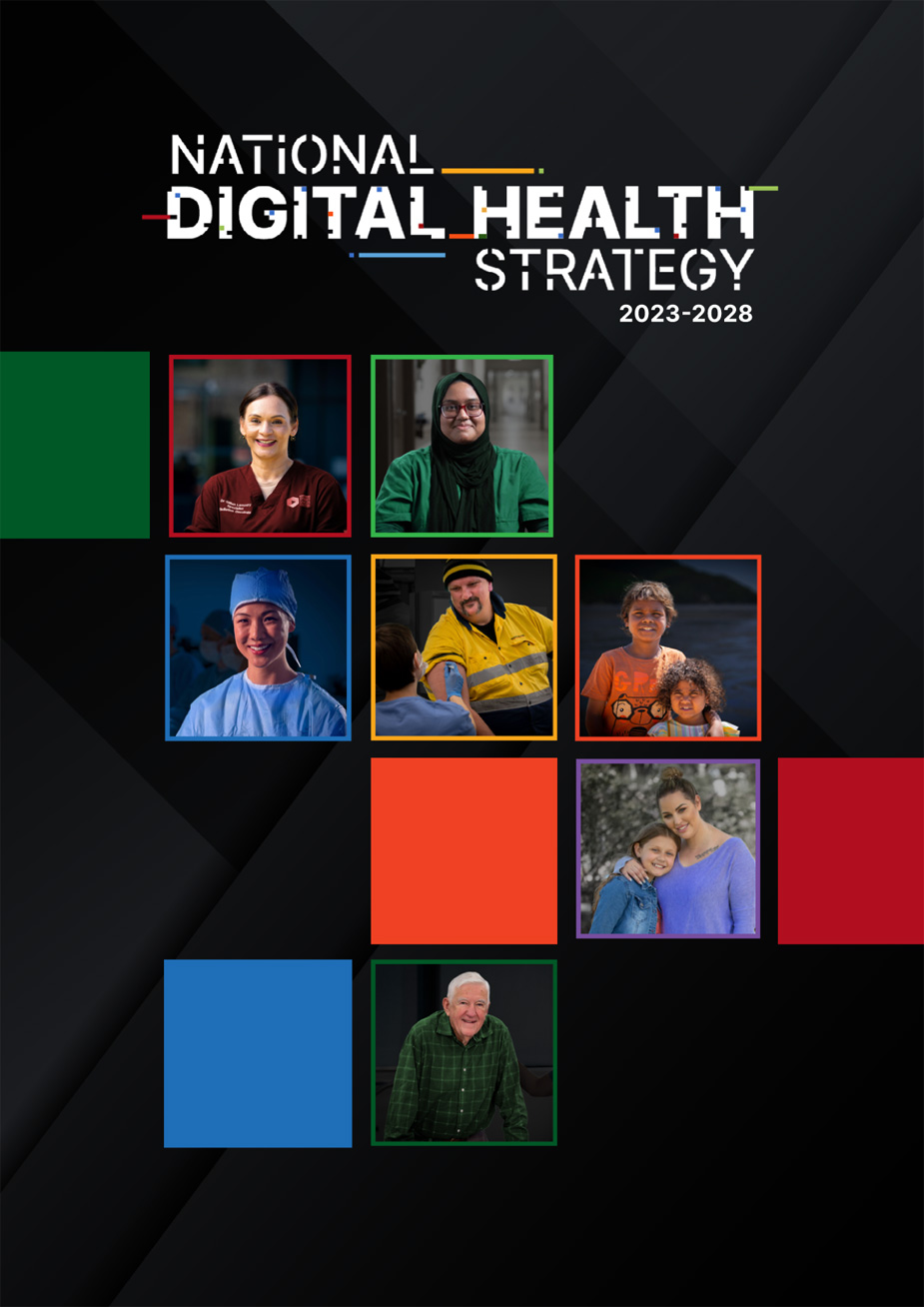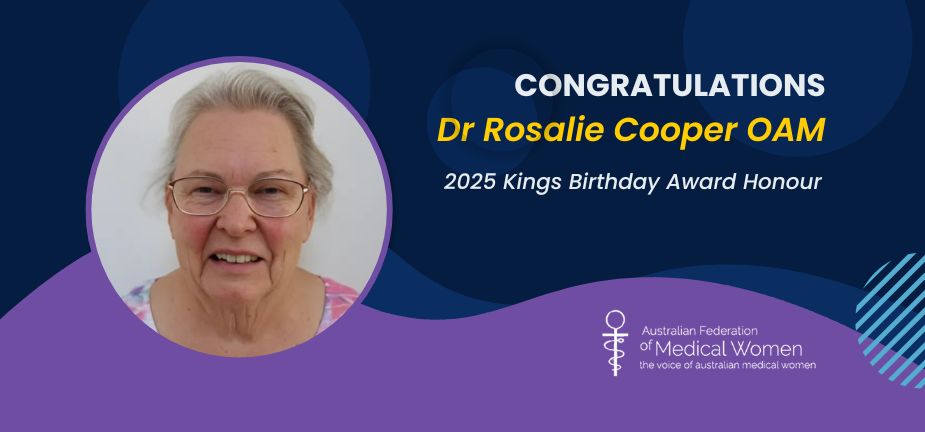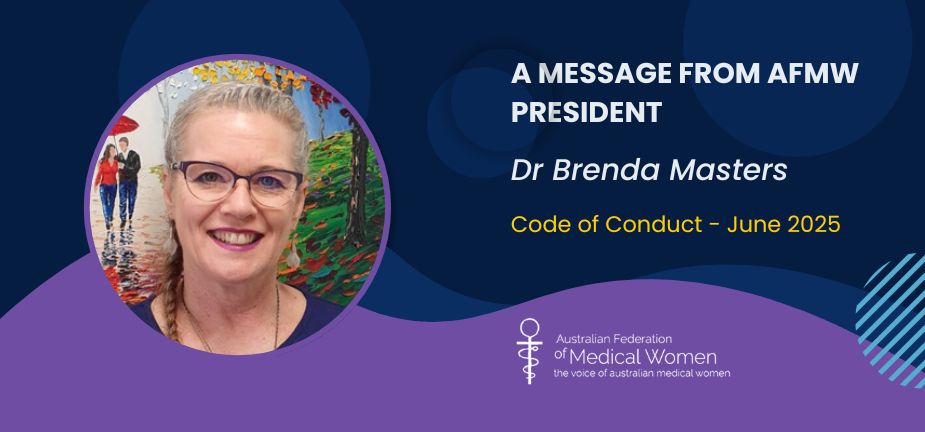EXECUTIVE SUMMARY
AN OPPORTUNITY TO TRANSFORM HEALTHCARE
Australia is taking the next steps towards the digital transformation of healthcare, embracing new opportunities and ways of managing our health and wellbeing. This National Digital Health strategy places people at the centre of a modern, connected and digitally enabled healthcare system. It is a strategy inclusive of all who live and receive healthcare in Australia, from Aboriginal and Torres Strait Islanders to people newly arrived on our shores. It works to increase data and digital progress, access and inclusion and also takes into consideration the aims and activities of other plans and strategies, both across governments and the broader digital health ecosystem.
Digital health is helping us meet challenges such as health inequity, increasing levels of chronic disease, rising healthcare costs and global health threats. It is enabling a person-centred healthcare model that improves access to coordinated multidisciplinary care and management of complex and chronic conditions. Digital technologies are easing pressure on hospitals and, through the sharing of quality data, helping to inform evidence-based decision making and the transition of care between healthcare settings. Australians, including the more than 23.7 million people with an active My Health Record, are better equipped with the information and tools they need to understand their health status and risks and manage their health and wellbeing.
This next phase of digital transformation will drive information sharing and advance real time data exchange to make information available when and where it’s needed, in line with consumer
consent and strong privacy and cyber security standards. People should not have to retell their health story. Their key information should follow them and, should they wish, be available to the whole care team across primary care, allied care, hospital care and aged care. The resulting reduced duplication and waste will also decrease workforce and budget pressures and increase
safety, quality and productivity.
A thriving, collaborative digital health ecosystem is founded on a common understanding of priorities and direction and relies on settings that support innovation and build confidence and trust. To achieve this, digital health technologies should be developed through partnerships between industry, technology vendors, healthcare providers, researchers, governments and consumers, supported by agile funding solutions to respond to the rapidly changing digital environment. Strong leadership, cyber security and governance, including clinical governance, are essential when forming a nationally coordinated approach to the collection and sharing of critical health information, and when creating policy and regulatory settings that encourage partners and collaborators to share cross industry digital expertise.
For successful adoption of digital and other health technologies, confidence and trust from within the health ecosystem and across the community is required. Stakeholders need to be certain that he use and regulation of digital health is in line with social expectations, and that it will deliver benefits to both individuals and the community, while allowing risks to be managed appropriately.
Modernisation of Australia’s national digital health infrastructure is required for a contemporary, data-rich digital health ecosystem that can safely support emerging medical science and technologies such as genomics, artificial intelligence and sensor technologies. This data-rich environment will also provide improved data analytics to inform self-care, clinical decision making, public health policy and health research.
Building on the achievements of the previous National Digital Health Strategy released in 2017, this strategy acknowledges the efforts, planning and investment to date towards digital enablement and the uplift in digital health maturity. It is on this foundation that the potential of a more connected, person-centred digital health system, and the benefits it offers individuals, the community, healthcare providers, governments and industry, can be realised. The vision of the National Digital Health Strategy is ‘an inclusive, sustainable and healthier future for all Australians through a connected and digitally enabled health system’. Working together, we can achieve this vision to 2028 and beyond.
View The National Digital Health Strategy (11mb pdf)
Associate Professor Magdalena Simonis AM is a Past President of the AFMW (2020-2023), former President of VMWS (2013 & 2017-2020) and current AFMW National Coordinator (2024-2026). She is a full time clinician who also holds positions on several not for profit organisations, driven by her passion for bridging gaps across the health sector. She is a leading women’s health expert, keynote speaker, climate change and gender equity advocate and government advisor. Magda is member of The Australian Health Team contributing monthly articles.
Magdalena was awarded a lifetime membership of the RACGP for her contributions which include past chair of Women in General Practice, longstanding contribution to the RACGP Expert Committee Quality Care, the RACGP eHealth Expert Committee. She is regularly invited to comment on primary care research though mainstream and medical media and contributes articles on various health issues through newsGP and other publications.
Magdalena has represented the RACGP at senate enquiries and has worked on several National Health Framework reviews. She is author of the RACGP Guide on Female Genital Cosmetic Surgery and co-reviewer of the RACGP Red Book Women’s Health Chapter, and reviewer of the RACGP White book
Both an RACGP examiner and University examiner, she undertakes general practice research and is a GP Educator with the Safer Families Centre of Research Excellence, which develops education tools to assist the primary care sector identify, respond to and manage family violence . Roles outside of RACGP include the Strategy and Policy Committee for Breast Cancer Network Australia, Board Director of the Melbourne University Teaching Health Clinics and the elected GP representative to the AMA Federal Council. In 2022. she was award the AMA (Vic) Patrick Pritzwald-Steggman Award 2022, which celebrates a doctor who has made an exceptional contribution to the wellbeing of their colleagues and the community and was listed as Women’s Agenda 2022 finalist for Emerging Leader in Health.
Magdalena has presented at the United Nations as part of the Australian Assembly and was appointed the Australian representative to the World Health Organisation, World Assembly on COVID 19, by the Medical Women’s International Association (MWIA) in 2021. In 2023, A/Professor Simonis was included on the King’s COVID-19 Champion’s list and was also awarded a Member (AM) in the General Division for significant service to medicine through a range of roles and to women’s health.











